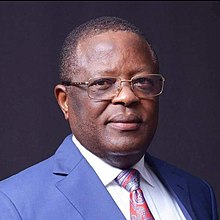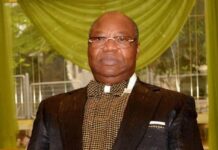By Cecilia Ologunagba
Okezie Ikpeazu of Abia has urged all the states in Nigeria to embrace the newly inaugurated Nigeria Integrated National Financing Framework Report on Sustainable Development (INFF)
The News Agency of Nigeria (NAN) reports that President Muhammadu Buhari had on Friday inaugurated INFF in an event on the sidelines of the 77th United Nations General Assembly.
Ikpeazu while reacting to the significant of INFF to the sub national government told newsmen that the framework would give direction to the state governments on how to achieve the SDGs.
Through INFF strategy, countries take forward financing reforms to mobilise and align public and private financing with their national sustainable development priorities.
According to the governor, INFF is a robust integrated framework that every state should use to mobilise support for the implementation of the SDGs.
“Funding education, for instance, is so critical that no government can do it alone, because it changes and there’s a need to align outcomes from the laboratories in the various tertiary institutes with the industry.
“That is the only way we can complete the circle. So that we are bringing innovative problems of the academia, marketing it to solve specific problems, funding can come back to the university for research and all of that.
“That is part of what you need to do to solve the problem going forward.’’
Ikpeazu said Nigeria had done the best by launching the document, noting that is the way to go because financing SDGs is challenging.
He said financing SDGs across the globe was partly challenged by issues of climate change, disruptions in supply chains, conflicts and diseases.
“The world should collaborate on finding innovative ways to finance SDGs for the benefit of the teeming population and is particularly important for Nigeria.
“It is important for Nigeria because we are a diverse country with so many challenges, we think that this is time for sub national governments to become a little more proactive,’’ the governor said.
Ikpeazu said the sub national governments could adopt the framework in terms of policy to match the zeal of Mr President to implement the SDGs.
He said that they could do so to make sure that at least they draw attention of the partners and integrate INFF with the private sector impetus with government muscle, capitalising it to make sure that we achieve the SDGs.
“So, it’s not a one solution fits all, every sub national government with challenges should look at the dynamics of environment and see how best you can adopt same.
“That is in fact my takeaway from this event.
“It’s interesting that you say that because if you look at the goals – education, poverty and all of that and many really thinks that states are not doing to collaborate to achieve some of these goals,’’ the governor said.
Earlier in her remarks, the Senior Special Assistant to the President on SDGs, Adejoke Orelope-Adefulire said the UN had particularly praised the Nigerian government for the implementation of the action plans of Nigeria, putting Nigeria ahead of many countries.
She added that in August, Nigeria became the “first country in the Global South to have successfully completed a Country-led Independent Evaluation of SDG-3 on ‘quality health and well-being for all’ and SDG-4 on ‘qualitative and inclusive education and lifelong learning for all.’’
Orelope-Adefulire said the Office of the Senior Special Assistant on SDGs also collaborated with the National Bureau of Statistics to track progress on the 230 Key Performance Indicators on annual basis.
The official explained that she was also working with some state governors to “integrate Sustainable Development Goals into their policies, programmes and budgets.’’
In his remark, Axel Maisonneuve, Head/Sustainable Development, Minister Counsellor, Delegation of the European Union (EU) to the UN, said EU had also support the mobilisation of capital for an inclusive and sustainable transition, which is at the heart of an INFF, in several ways.
“For instance, we know that whilst public finance of course has a key role to play, it will not be sufficient to bridge the SDG financing gap, and private finance needs to be mobilised as well.
“In the EU, we believe in fact that sustainable finance is critical to enable private financial flows being channelled towards sustainable investments.
“The EU’s Green Deal and the Global Gateway strategies are some of the key examples of the EU efforts in this direction. Indeed, sustainable finance is part and parcel of an INFF,’’ he said.
According to him, private finance is very much part of Nigeria’s Integrated National Financing Framework.
Maisonneuve said the INFF was designed to help the Nigerian government explore innovative financing options linking government with private sector and development partners to increase public revenue and private investments.
“Let me take this opportunity to praise Nigeria for the efforts undertaken toward the achievement of the 2030 agenda and the SDGs and for the key milestone that you have achieved.
“In September 2019, 16 countries committed to pioneer the development and implementation of INFFs, and Nigeria was among them.
“Now, Nigeria has successfully designed its INFF Strategy, and is offering a leading example for INFF progress toward a more systematic, holistic approach to achieve sustainable development objectives,’’ he said. (NAN)




